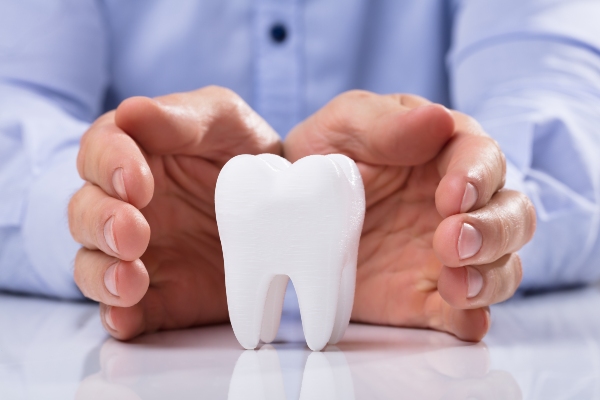 Seeking an emergency dentistry solution to tooth avulsion must happen right away. In this type of dental emergency, your chances of getting your tooth back in your mouth are higher if you go to the urgent dental care clinic. Knowing how this dental facility can help your situation can give you hope for recovering your tooth. Here are the details if you want to know how emergency dentistry can treat your avulsed tooth.
Seeking an emergency dentistry solution to tooth avulsion must happen right away. In this type of dental emergency, your chances of getting your tooth back in your mouth are higher if you go to the urgent dental care clinic. Knowing how this dental facility can help your situation can give you hope for recovering your tooth. Here are the details if you want to know how emergency dentistry can treat your avulsed tooth.
An avulsed tooth needs an emergency dentistry treatment
An avulsed tooth is a tooth that has been uprooted from its socket. This can happen during an injury. A hard fall or blow to the face may dislodge the tooth. When this occurs, the individual will find it difficult to replant it.
This is a painful dental injury because the nerves and roots are exposed, and the entire mouth is also at risk for infection. It is crucial to not panic and to find the tooth right away. Be sure to hold the tooth by the crown to keep the roots intact. Keeping the tooth alive is crucial for the success of the tooth replanting process when the patient arrives at the emergency dentistry facility.
Preventing the root cells from being crushed
An avulsed tooth will often end up on a synthetic surface, such as carpeting or a bare floor. The hard surface may cause the dental roots to go through trauma. The dental root’s cells are sensitive, so expect some root cells to be damaged. Picking up the tooth by its crown is essential, as it will prevent contact with the root cells.
Holding the tooth by the crown will isolate the trauma to the enamel layer. If fingers touch the roots, even slight pressure will crush more root cells. Cleaning off the debris is not advisable either. Physiologic saline is the ideal cleansing solution, but the patient should not scrub the roots. Agitating the tooth while washing it with physiologic saline is enough to dislodge the debris.
Placing the tooth in a cup of milk while traveling to the emergency dentistry center will keep the tooth moist and alive. After they retrieve it, the dentist will also touch and handle the tooth by the crown.
What emergency dentistry can do
When the patient arrives, the emergency dentist will inspect the area of tooth loss. The dentist will also check the tooth. A salvageable tooth will be able to be reattached to the socket. Anesthesia and pain medication can help manage the discomfort. The dentist will use tiny sutures to repair the gumline and socket, which tore when the tooth was dislodged.
The emergency dentistry facility has dental X-rays that can help the dentist check the replanted tooth. The dentist will place a dental splint. This will keep the tooth in place. The splint will be in position for two weeks as the roots reattach to the socket. The emergency dentistry professional will prescribe antibiotics to lower the chances of dental infection. This medication can also help the site heal faster.
An emergency dentistry treatment can reattach your avulsed tooth
Tooth avulsion is a serious injury. A healthy tooth should not separate from its socket. Keeping the tooth intact and alive will increase the chances of the reattachment’s success. Working with your emergency dentistry professional can help the tooth survive and be healthy again.
Request an appointment or call Anthony DeLucia D.D.S., P.A. at 772-492-7045 for an appointment in our Stuart office.
Related Posts
Dental emergencies can happen unexpectedly and lead to severe discomfort. When faced with sudden oral pain, injury, or infection, you should seek immediate care from an emergency dentist. The following framework outlines the typical processes and considerations you can expect from emergency dental care.An emergency dentist specializes in providing immediate dental care for unexpected issues…
An emergency dentistry office is accustomed to repairing trauma to teeth. This is one of the most frequent types of reasons why patients go. If you have had an accident and hurt one or more teeth, call an emergency dentist near you. Though you may be in pain and have risks for further problems, you…
Emergency dentistry deals with dental emergencies that require immediate treatment. For example, an infected tooth requires urgent care since it causes excruciating pain, and the infection is always a risk of expanding to other parts of the body.Here are some fascinating facts everyone should know about emergency dentistry:The emergency dental care umbrella covers any dental…
